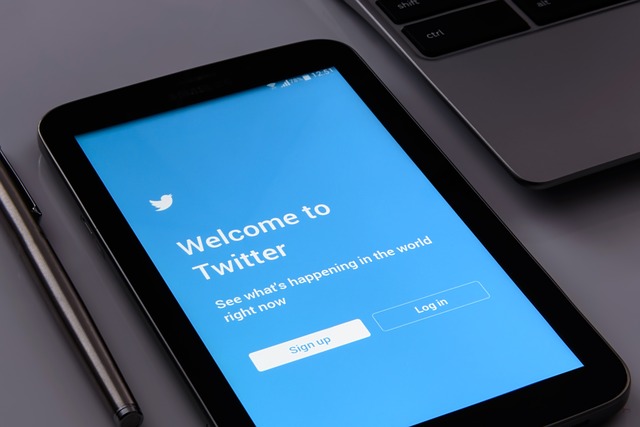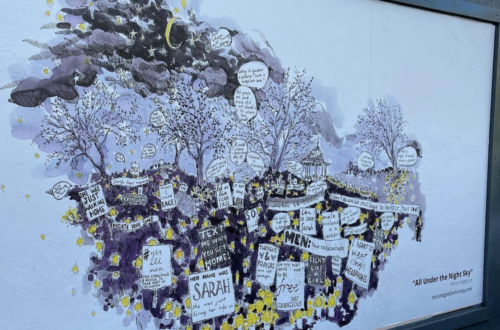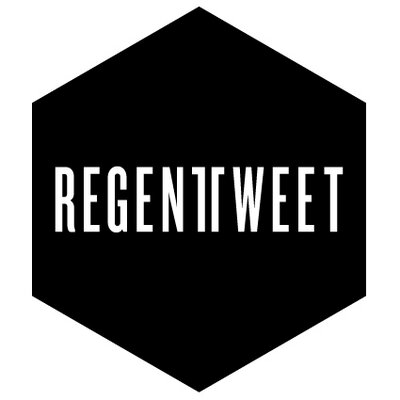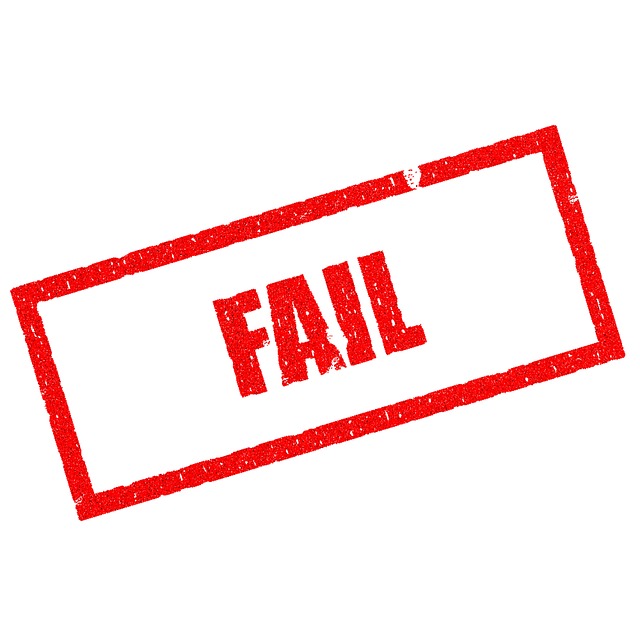DIGITAL
-
On work and work related choices
Your work is going to fill a large part of your life, and the only way to be truly satisfied is to do what you believe is great work. And the only way to do great work is to love what you do. If you haven’t found it yet, keep looking. Don’t settle. As with all matters of the heart, you’ll know when you find it.
Steve Jobs
It has been a few weeks since I have finished a huge project. I tried to bring in social media into it but I have failed. But I would like to think that I have not wasted my time and that we can all only learn from our experience – if we wish to that is;) Many of those who worked with me on the project were really looking forward to me celebrating the departure – almost as if they’d wish they had the ability to do the same (for the record – they can!). My family was extremely relieved to see me relaxed finally. My fellow bloggers were happy to hear that I will be back online. But me, well, I was quiet, still and tried to measure whether I have learned anything at all from this experience. I have not acquired any new skills – unless you count in waking up at 5AM each day. I have however understood a bit better all my clients who want to act as agents of change in their organisations and sometimes simply have to leave.
I have also understood all the things I have learned in my work experience so far that made me who I am today. I realised just how lucky my path was and how smart my choices were. Here is what I can think of today, though I am sure as time passes I will understand – and share – even more.
1. I have been a lucky individual when it comes to my post-grad jobs. Working at Nokia I have learned all the basics of team work, need for training and basics of tech industry. I was taught how to handle stress, why branding is important and why it needs to be embedded in the backbone of each and every member of staff. At TATA I have learned the importance of company vision, management of multicultural environment, the margin of just how much you can impress your prospects with well positioned numbers but how you don’t subscribe to stuff you simply don’t handle well as a team or as a brand. I think it was at TATA that I have learned the respect towards each client and their vision – I learned that a successful agency needs to be…well, simply humble and supportive. It was also at TATA where I have met my first amazing managers – leaders, captains (always in the office early, always leaving last), supporters and great mentors never forgetting to be respectful towards our talents too; managers who in the moment of extreme client workload would find the right joke to cheer us up and thus make us realise that yes, we can work harder! Later on at 1000heads I have learned everything about the world of word of mouth and at the time still emerging social media marketing. I have learned the pain and joy of working on a huge project and seeing it through till the very end with magnificent results and yes, stress, but also great team work on the way. The company grew and many people felt that it has not coped with the growth as much as we would have anticipated so many of us left, but that also was a good lesson to me: not to settle in, always search for the place and team that makes me love what I do.
2. I have acquired and developed industry (social media marketing) related skills almost parallel to my personal passions. Yes, I was so lucky. When you get the job simply because you blog in a few languages (but also because you have the relevant experience!) it feels so good! When your personal interest in technology and communication, marketing and change is utilised on a daily basis – even while filling out yet another presentation slide – you feel that coming to work is really a natural extension of who you are and who you want to be.
3. I have worked in spaces and locations open to creativity, thinking outside of my own box but respecting my own input, inspiring new (my and team) ideas. I do not like office work but I can see its benefits. I have worked in open spaces, in small rooms and finally from home and on the go – wherever there is wifi or even offline. Everywhere I worked I had the ability to rest, grab lunch and use that time to connect with amazing colleagues, clients or senior managers so I have learned over food, coffee and on the way to work. In Eastern Europe I have learned to make Indian sweets and munch on a spicy pizza when pregnant – all this while sharing career tips with experienced businessmen. In Mexico I had the privilege to join my team for 2 hr long siesta, learn customs and still find the time to finish work on time, effectively. In the UK I have enjoyed elegant dinners dedicated to superb conversations about the future of the modern social web. I made friends and gained even more inspiration to sit down in front of my ‘screen’ or phone and do something amazing.
4. I had amazing managers, leaders and mentors. This is possibly the most important aspect of my work so far. Life gave me a huge opportunity to work with people were educated and highly intelligent, experienced but humble and always willing to treat me as an equal individual with great ability to become as great as they are – if I listen to their advise and work hard to achieve my goals, that is;) I had managers who trusted me, who believed in me and always knew better what I am capable off. Every hard push was well balanced, creative and if disruptive – with right reasons. Over time I have developed this great ability to even learn from observation, from how they worked and what they would not mention or how they would not react in crisis situations.
I would like to thank my past leaders: Mihaela, Sanjeev, Lyzzon, Mike R, Euan and Gabriela for all their honesty and inspiration.
5. I had amazing teams. I managed and collaborated with a great pool of individuals from so many countries, backgrounds, with skill set and intelligence I would never be able to compete. I have learned so much from their feedback, their work, their support and their small failures too.
6. I was trained to identify fast what works for business and what does not. I have worked for startups but also for large corporations – stable offices or offices opened in a new country, new environment. I have seen many sizes of businesses and worked with many business owners too. I have seen some of them failing to acknowledge the change and reality around their own services and operations, I have seen agents of change saving their future. I have seen many fail. For many reasons too.
7. I have been told and I have learned to judge people and companies based not on what they claim they are but on how they progress and treat their employees in the process. It’s the classic situation: you meet someone who says ‘Trust me, I am a very honest man’ and you can almost for sure assume that it is not true. I know that for a social media marketer (and a linguist who had to study psychology) this statement says a lot but if you still don’t get it just measure your own reaction and level of trust when hearing that statement and hearing something down the lines of ‘I am told/People tend to refer to me as an honest person’. This is exactly the shift that is happening in branding due to the overall understanding and usage of public social media platforms – consumers do not trust your branding messages. They want to be able to make their own judgements so it is the reviews and testimonials, organic discussions, that reflect the real value of your brand and services. And with the rise of semantic search the same is happening on Google. But I was lucky to have great tips from people who saw it earlier, in their own career. So when you host a pitch for agencies you gain the ability to judge documents and presentations not based on slogans or proud statements but on actual results and the way the pitch is delivered (understanding of your business, tonality, professionalism and respect).
8. I had courage; courage and need to change. Almost physical need, inner drive to change, to do things better, to learn, to listen, to follow the good advice, to try and to fail, then to learn and do it again, to move, to talk, to collaborate, to observe, to achieve, to articulate, to get it and to pass it on, not to own but to share, to take budgets and resources and create award winning campaigns, to experiment, to inspire people to grow and do amazing stuff themselves – then leave and feel happy, let it go and let others change too. And finally, yes, to enjoy the check but most of all the feedback, trust and future reference, friendship for it was that set of rewards I found somewhat equal to all my passion and hard work.
That is not to say that I am a perfectionist who has always delivered amazing work. No! Quite on the contrary – I the more I learn, the less I know! I have succeeded on so many projects and yet I have also failed, I have made mistakes – and I was lucky to work with honest people who would point it out and expect me to do better, work harder, think smarter. I was lucky. I was also quite opinionated and difficult. I have actively looked for great projects and said no to ones that by default led to a series of failures. On many occasions I have tried to act as the agent of change and made it happen. On very few occasions I had to leave (quite gutted!) and accept that change is not possible. When we fail we can only get up, learn and try harder to achieve success elsewhere.
Why am I writing this? Because if you work in a place that makes you sight with a heavy heart before you open the office door you know very well that something is not OK, but maybe you are not as lucky as I was to identify the exact issues. Maybe you just want to earn a little bit of money and that’s all. Maybe you do not know what you want. That’s perfectly fine. But maybe you do not believe that a good project and great people are out there and can actually join in, so they can shape you into a person who will achieve amazing things and love the work! You CAN love your work but it’s not all about money and 8AM to 7PM typing of endless streams of data or ideas that will never change anything. It’s about aiming for more. It’s about re-defining your idea of ‘success’, ‘quality’ and ‘trusted mentors’. And most of all – about accepting that the world is changing and to be happy you have to dare to step outside of your comfort zone, trust but question leaders, question assumptions, question YOURSELF. You deserve better and you need to make it happen, it is YOUR responsibility.
Sometimes you need to leave, change, make it on your own. Sometimes you will be lucky to find partners in this crime;) Good luck! There are many of us here to help you!:) You just need to dare to take the first step.
-
Join my social media training sessions in Warsaw!
It’s so nice to be able to go back to Warsaw and share all my social media learnings, even if it happens just time to time. It looks like this spring I will be teaching social media for nonprofits and for small businesses in a newly launched School of New Media, so if you are around (and speak Polish) do join me on the 26th of April in central Warsaw (more info here).
-
Why some don’t get the social web while others do
The social web can be judged, mocked, commercialised – primarily by people who do not get it. But sometimes, on the level of an average user utilised for small miracles. I know this video is an ad but the story remains magnificent – Internet combined with good will and efforts can lead to brilliant endings or beginnings, small signs that historical, political or any other boundaries can possibly be bridged. I can only hope that those who build it find the right balance between business and humanity.
-
Why do you work in fundraising sector?
Ok, the question is probably too generic and it has been asked many times before but for the purpose of finishing my first book I have used the opportunity of a session at #fundraisingcamp to investigate various paths fundraisers take in their career building. I am particularly interested in how the social web is influencing our choices, if at all.
I came back home with few very valuable, inspirational quotes. Russel Squire’s (NSPCC) words reflect the way I feel about blogging so I am sure I will use them in my book. When asked why he is still with NSPCC if as an experienced fundraiser he could potentially have even a better work in commercial sector, Russel said:
It’s me within it, very much authentic expression of myself.
Now how many of us can say this about our work? If we don’t feel this way about our jobs how can we navigate towards the jobs of our dreams? Is it possible to identify a particular job or should we think about lifestyle, particular industry, size of the organisation we would like to work for? I would like to think that the social web allows us to connect with our true self easier, but just because I think and feel so that is not to say it’s really happening. I am still not sure but the more I write and talk to people about this topic, I am more and more inspired to investigate it a bit more;) I hope to bring something back to you very soon!
-
How easy is it to delete your account?
JustDelete.me is a new project aiming to answer this question. It contains a collection of links taking you directly to the “unsubscribe” area of each site you might be on. I have suffered a lot with the fact that I could not restore my original Evernote account so when I decided to set up a new account and close down the old one I realised the pain of searching for this particular option. How good to see someone helping us all out!
-
Get your life back!
I think it’s only appropriate to talk about newsletter subscriptions management in August when most of us enjoy a little bit time off work and start to appreciate the silence in our inboxes (even though I work in social media I do feel this month is a bit quieter then spring, fall or winter months). Unroll.me is a simple tool helping its users in mapping out and managing newsletter subscriptions for gmail, Google apps and Yahoo email accounts. (More here).
Why is it so important?
Well, people subscribe to many newsletters and updates for numerous reasons, of course. The majority of my readers work or happen to be interested in social media or non-profit sector so we tend to subscribe to many industry related newsletters. I used to think that managing a large chunk of incoming emails is a simple task because I happened to be blessed with a customer service job in the past. Responding to 350 emails each day is not a big deal, logging their content and completing team management tasks on the top of that somehow trains you to love the noise. Noise is good as it helps you find little treasures, I dare to say that it is noise that’s the best thing about the web. However, you need to know how to handle the noise and if you cannot do that you might suffer, a lot!
Recently I started to fall in love.
With minimalism.
With emptiness.
With silence.
With clean.
It’s strange. I did not live the phase of information overload but I did get infected with the minimalist trend probably since I started using Apple devices – I give it to Steve, he was a genius. So is his team even today. So is Google. So is IKEA. And all other companies introducing simple but functional solutions. Their products and services affect the way we live and I would like to think they do so in a good way.
I see how many of my overloaded colleagues, who did not have the opportunity to experience or were not trained to manage a higher volume of data, can feel almost physical need to switch off and de-clutter their lives. Why? Because moving away from clutter leaves space for thinking, feeling and enjoying what we have. Nothing more. And that little thing we have SHOULD be enough.
It is exactly when we leave space for less that we start to appreciate and grow what we have and choose carefully what we ask for. I like black, white and all their shades. I appreciate, digest, take in and celebrate colours more than ever before!
So I have decided to declutter my inbox of many useful newsletters to ensure that I actively go out there and keep an eye on all the amazing projects I have so far expected to update me. This way, I think, I am participating a little bit more. With a clear head;)
-
Word on becoming a social media marketer
I have been asked recently in one of my workshops about careers in social media marketing and choices one needs to prepare for them choosing this still new path. I happen to be talking to active bloggers and social media users, not PR or marketing professionals so I was faced with the dilemma: shall I tell them the truth and risk losing some potentially amazing future colleagues or shall I try to inspire them and ignite their enthusiasm? I do not think I have answered their question fully so here it is in more detail, all challenges (or facts) of becoming a social media marketer coming from a geeky background:
1. You will work with PR and marketing professionals who have no idea about social media, learned to blog or tweeting a few months ago and dare to call themselves social media marketers.
How to spot them: They will describe themselves as gurus, ninjas, evangelists or other abstract roles, when in the true meaning of their role they should be able to apply their marketing roots to the new landscapes of social web, meaning knowing as much about tools+content+people relationship as possible.
How to deal with them: if possible, avoid them – it’s really difficult to correct people who use “blog” term for their recent blog post without going mad and usually does not lead anywhere. Gurus do not listen, nor accept. They preach and evangelise! Just listen and move on to do your job.
2. You will work with marketers who think and speak in numbers, industry slang and acronyms.
How to spot them: if you hear your fellow marketer using following terms: KPIs, it’s not rocket science, audience engagement for planned viral video or anything else from www.whatthefuckismysocialmediastrategy.com then you are dealing with one of them.
How to deal with them: confront them and start using made up acronyms to confuse them. You can also plan a new slang slogan in their head. I have seen someone writing up an entire dictionary of buzzwords for his colleague and distributing it across the company. Worked really well, though do not count on changing the actual marketer. It simply speeds up the process of decoding their messages.
3. Sometimes you will work with people who are not nice!
Marketing means creating demand. It also means wrapping up nothing into something and creating a story sometimes out of thin air. By default, you can assume that many people working in this industry will not care about core social web concepts (collaboration, mutual respect, trust and personal reputation in networks, etc).
How to spot them: it’s a difficult one but often sooner or later you will figure it out. In my personal experience, one can spot a more selfish social media marketer by their lack of contributions to your or their own community, rather rude and self-centric tonality of speech and lack of good past case studies with good personal recommendations.
How to deal with them: learn to keep distance and manage just how much they know about you. Do not show your vulnerability. Maintain professional but cold relationships. I suggest you watch Brene Brown discussing happiness in this context as it tackles the fact that openness is positive but rare. So learn to protect yourself at work and, if needed, keep your sensitivity for friends, online audiences or family. Do not show it at work, unless it is directed at trusted people.
Is it all manageable? Well, I am sure it will depend on your character, but I think it is. The longer you work in the industry the easier it gets to clearly see how to establish, nurture or simply keep at bay new industry relationships. Be aware of the choices you make and remain professional at work to be able to live your personal life fully.
-
Teaching social media for personal career building
I would like to thank all the students who attended my course on social media for career building at the Ravensbourne in London yesterday. I am glad that you have arrived with great, quite important questions and left with few answers and de-mystified tips on the practical value of the social web for your personal branding and projects. I have really enjoyed talking to such an intelligent and ambitious group of people. Every time I talk to younger generations of creatives I feel inspired, proud and happy to see that when given the right tools they can make the web their own and shape it into amazing projects with quite substantial results. Happy, you made me happy! Thank you!
-
#RegentTweet write up
RegentTweet 2013 was my second year of discovering little treasures of Regent Street in London. I am really, really impressed with the idea and execution of this rather complex blogger engagement campaign. Last year I was joined by my son who genuinely loved the game of looking for QR codes (he is probably more of a shopping fan than I am;)) but this year I have actually enjoyed the shopping experience myself. I think there was a bit of a critic left in me because I did walk away from one of the shops (not ready to welcome bloggers before 11AM, which made me late to the Apple store lecture!) but I have enjoyed all other experiences! If you ask me for highlights I would name hand massage for ladies at Crabtree and Evelyn (perfect fit for a blogger, don’t you think? I almost hired the lady to live with me and massage my hands every single week, but she said she would probably stay in London;)) and visit to Rapha cafe (really respect them for staying in touch in advance of the event, on the day and afterwards too). I loved the day and I really hope that my fellow bloggers had fun too!
Big hug to the organisers for a great Saturday in London!
-
Designed by Apple and how to re-design our lives
“Designed by Apple” is a great summary of why so many of us like Apple products and technologies but for me, it’s a great summary of my personal journey too, so if you don’t mind I will use it in this context. For the last three years, I have felt that I am struggling with the amount of “improvements” in all areas of my life and arrived at a very emotionally charged November 2013 when my personal happiness simply evaporated. It’s such a terrible thing to admit in public! But here’s some good news: I have spent last six months de-cluttering my life from everything that “might be useful later” and crystallising my new goals and today I am almost at the end of the process. At least I can see clearly all crucial areas of my life and I can start coming back to my old, super-productive and happy self.
I really hope you will never arrive at that deep and dark place I have been to but just in case here is my recipe on the way out:
1. Set up a time frame and inform others about your plan.
Give yourself time! I took six months and agreed with my family and friends on this particular period. I explained my reasons and promised to keep everyone in the loop as much as possible. Surprisingly all my close friends were very supportive and are here for me all the time during this process, actually asking me to take more time to regain my balance and happiness – I love them all for it!
2. Switch everything off!
Mute out EVERYTHING. Stop all your social commitments – you are probably feeling that you are not delivering anyway. Cut down on work if you can and feel that it does not make you happy. Put away your “to-read” books. Switch off TV, radio, even music. Stop. Stop for a while. Find something brainless to do. In my case meditation and yoga were the key. I spent two months working on all major jobs, but the rest of my time was spent in the garden, on the yoga mat, in my specially designed meditation corner.
3. Take it easy and only then attack the more complex problems!
If you feel lost or cannot identify the source of your crisis first try to focus on easy solutions. I personally felt that my problem is rooted deeply in the way I relate to work, family and all relationships – which is a highly complex area of life. So I decided to work on my fitness, relaxation and physical surroundings first trying to work out what FEELS good, what makes me HAPPY. The moment you try to tackle the most complex issues you risk getting lost in your own assumptions so it’s much easier to start small and gradually move to more intense challenges. It took me two months of NOT THINKING about my crisis to be able to see through it with a bit of distance and common sense.
4. Take yourself and your closest friends seriously!
Do not ignore the role others play in your own happiness and your input in their daily lives. As much as you wish to step back, ignore everything and find time for yourself do not forget to let others know just how important they are for you. That’s all you need to do – tell them! You do not have to commit to a weekend of partying (which as stated above would probably work against your goals of relaxation and self-discovery) but there is always time for a SMS, email or a kind sentence on the go.
5. Stay relaxed but disciplined and focused!
Keep to your original timeline and do keep your eyes focused on your goals. If you are aiming to identify and resolve your crisis or re-define the way you live, study, work do all that’s in your power to complete your planned process. In my case, I had to move from meditation to active conversations with friends, notes and thinking. It’s shocking just how we tend to forget to think carefully about the way we live or the way we define our priorities.
6. Exercise!
Write a journal. Make lists of your goals, dreams, priorities. Are you able to define a top ten most important things in your life? If so, write them down and think carefully about their order. Are you sure? If you are doing this exercise in the right, serious manner you will see that you might need to rearrange priorities. I was always convinced that my top priority is independence and freedom of speech just to discover that something that was not on the list (due to the strange feeling of obviousness) was family. To discover a crucial item missing off the list was quite a painful realisation to me, so I expect you might have difficult moments too. But remember, it’s all for good.
7. Trust yourself in finding the right balance!
You venture on a steep hill and often you might feel that you are also stepping into quite new areas of life. That’s all right. Just trust your instincts, experiment and measure just how far you want to change the way you live your life.
8. Share your discoveries with others!
Communication is the key. Always. After a few months of serious work, thinking, re-discovering your life and re-arranging priorities inside of your head and on paper, you might feel that your friends are not even aware of the huge shift inside of you. It’s natural to feel this way and if I may I would wait for the right moment to share it with your friends. We are responsible for each other – each and every change inside of you will initiate change in others, might cause a new sense of uneasy or lack of balance. I had to tread really carefully and explain small changes to all my friends and family each time a decision or discovery was made but also clarified and articulated.
9. Do not think you are done, ever!
After six months of taking active ownership of your l, fe you will feel that you have walked miles and aged centuries. You will feel fresh, ready to face new challenges with clear head and so on. But keep in mind that life is an ongoing path so memorise your priorities, exercise clear thinking and give good example of open, well timed communication. Do not assume your work here is done. The work has just started.
Now you can start designing your life.
Small note: please do not think that after half a year of serious work on my personal development I have suddenly become a successful life coach or philosopher. Quite the opposite – I am purely sharing my personal take on crisis situations and personal unhappiness. If you have your own take, do let me know! I would love to see how you respond to similar stages in life.





























